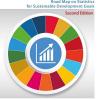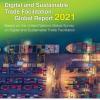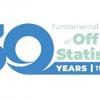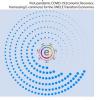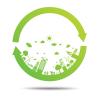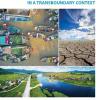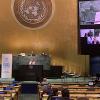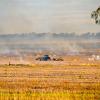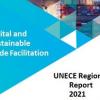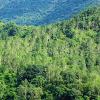Press Releases
Displaying Results 251 - 275 of 409
The Conference of European Statisticians Framework on Waste Statistics, published today by UNECE, provides a new perspective on defining and measuring the waste products of our economies.
Every household, enterprise and institution produces waste.
If not properly dealt with, this waste can pose a
The United Nations Economic Commission for Europe (UNECE) and the International Civil Aviation Organization (ICAO) have completed new digital air cargo technical specifications guidance that will help to accelerate the transition towards safer and more resilient supply chains, while making
Heavy metals such as mercury have led to great harm to human health and the environment, for example in the 1950s in Minamata, Japan, when the release of methylmercury in the industrial wastewater from a chemical factory poisoned many people. Even in smaller quantities, heavy metals released into
The second edition of UNECE’s Road Map on Statistics for Sustainable Development Goals, released today, provides comprehensive guidance for countries to help them strengthen their systems for producing and disseminating data on the SDGs.
In 2015 the world embarked on a journey to the future, to
Countries across the globe have made progress on digitalizing international trade formalities during the COVID-19 pandemic, but stronger efforts are needed to facilitate trade for small and medium-sized enterprises (SMEs) and other groups and sectors with special needs, according to a report
2022 marks 30 years since the Fundamental Principles of Official Statistics, now a General Assembly-endorsed global standard, were first developed and adopted at the United Nations Economic Commission for Europe (UNECE).
Created by the Conference of European Statisticians, UNECE’s highest decision
During the COVID-19 pandemic, driven by the constraints imposed by social distancing measures and restrictions on movement, businesses and consumers in the economies in transition in the UNECE region (e.g. Central Asia, Southern Caucasus, Western Balkans and Eastern Europe) – mirroring global
The transition to sustainable energy has been at the forefront of energy policy in many countries in the recent years. This process has become ever more important in the crisis caused by the COVID-19 pandemic and with a strong rebound of GHG emissions in 2021 after some reduction in 2020 when the
Developed in the first half of the 20th century, persistent organic pollutants (POPs) have been regulated or banned as widespread public concern over their toxicological effects for human health and the environment has increased. Research has shown that exposure to POPs can lead to
Zimbabwe’s road crash fatality rate increased from 1,836 in 2016 to an average of 2,000 deaths per year – over 5 deaths per day – from 2017 to 2019, according to the Traffic Safety Council of Zimbabwe (TSCZ). In reality, this figure may be over three times higher at some 7,000 road deaths per year
UNECE and FAO are implementing blockchain tracing technology in cotton supply chains in Latin America. Demand is increasing from consumers for more traceability of their products to the origin and for more transparent sustainability credentials. Yet in
Governments, businesses and individuals around the world are increasingly recognizing that the way our economies function cannot be sustained if we are to stem the tide of climate change, resource depletion and biodiversity loss and reduce our negative impacts on the environment. A more
“The explosion came at a very high cost with over 218 deaths, 6,000 injured, and at least 15 billion USD in destruction to infrastructure. In around 15 minutes Beirut lost over 15 years of development gains. We must learn lessons from this catastrophic disaster, not just for Lebanon but for the
Which users may use how much water of a river, lake, aquifer or other source? For what purposes, where and when?
These are the questions which a new Handbook on transboundary ‘water allocation’–which is the process and/or outcome of determining how different stakeholders use water–published under
What moments do you live for in your daily life? We all have precious moments that we cherish. Unfortunately, every 24 seconds at least one person has those moments taken away because of a road traffic injury. In 93% of the cases, that person lives in a low- or middle-income country.
The UNRSF's
Globally, more than 1.3 million deaths and 50 million injuries are caused by road traffic crashes every year, which are the leading killer of children and young people aged 5 to 29. Over 90% of all road deaths occur in low- and
Almost 2 years into the pandemic, we have all experienced long and repeated lockdowns. Recent news from New Delhi, however, tell us that the city has gone into another lockdown – this time because of heavy air pollution.
Winter is also the season when air
Today, the Inaugural Meeting of the Working Group on Tailings Safety and the Prevention of Accidental Water Pollution (IIWG) took place in Tajikistan, bringing together representatives of different national authorities, operators, international institutions and interested specialists to strengthen
When we read or hear official figures, such as the rate of inflation, the level of unemployment or the size of our country’s population, we expect to be able to trust in the accuracy of these figures. We want to be able to use them with confidence to inform our decisions.
We also expect the
The World Forum for Harmonization of Vehicle Regulations (WP.29) has adopted an amendment to a United Nations Regulation on Automated Lane Keeping Systems (ALKS) that lays down the technical requirements for their use in heavy vehicles including trucks, buses and coaches. This step marks the first
The trade facilitation performance of 44 UNECE member States has improved from 72 per cent in 2019 to 76 per cent in 2021, according to the Regional Report on Digital and Sustainable Trade Facilitation 2021 released today. The report contains the results from the United Nations Global Survey on
Protecting and restoring forests, as well as unlocking their potential to ensure livelihoods, green development, and a more sustainable outlook for humanity, were key points discussed during European Forest Week and Foresta2021 by the Joint Session of the UNECE Committee on Forests and the Forest
The impacts of climate change on forests will be profound. Yet global emissions reduction models rely on the ability for forests to both sequester carbon and scale up production of innovative new products that can replace emissions-intensive materials used in construction, textiles and energy
The renewable energy sector in Serbia is preparing for the first round of renewable energy auctions for the provision of renewable electricity. In view of the country’s potential, a large number of bidders are expected to take part in these pilot auctions for a total capacity of 400 MW. This
SPECA countries have experienced the effects of climate change and the COVID-19 pandemic on key aspects of economic development and cooperation, with negative consequences for sustainable development. COVID-19 related restrictions and border closures caused serious disruption to supply chains and



